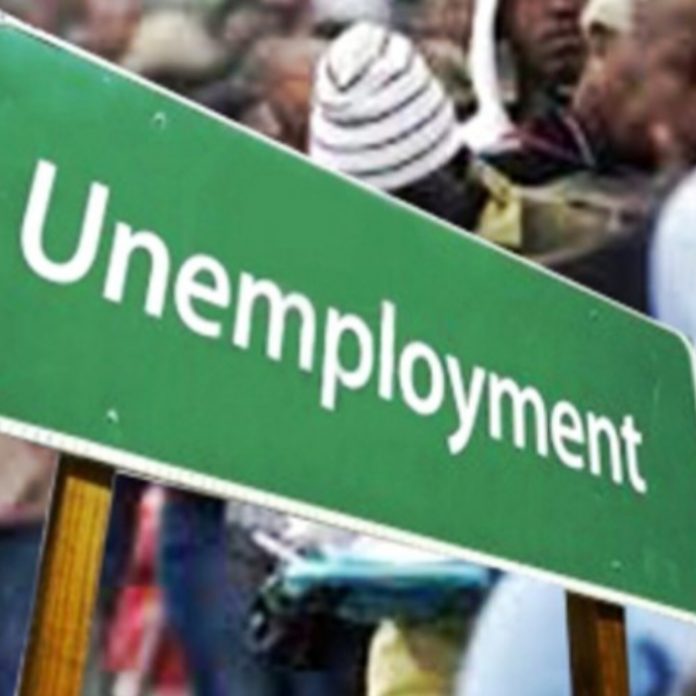Unemployment in Nigeria
By Tony Folarin
According to National Bureau of Statistics, Nigeria’s unemployment rate has jumped marginally to 5.3 per cent in Q1 2024 from 5.0 per cent in Q3 2023, with females posting a higher unemployment rate of 6.2 per cent compared to males at 4.3 per cent.
The latest report from the National Bureau of Statistics on Tuesday, indicated that in urban areas, the unemployment rate has not altered at 6.0 per cent, while rural unemployment has remained at 4.3 per cent.
“The unemployment rate increased to 5.3 per cent in the first quarter of 2024 from 5.0 per cent in Q3 2023.
“The unemployment rate among males was 4.3 per cent and 6.2 per cent among females. The unemployment rate in urban areas was 6.0 per cent in Q1 2024, the same in Q3 2023,” the NBS report read.
Among youths aged 15 to 24, the unemployment rate decreased to 8.4 per cent in Q1 2024, from 8.6 per cent in Q3 2023.
However, the percentage of youths not in education, employment, or training rose to 14.4 per cent, indicating growing disengagement among the youth population.
“The percentage of Youth Not in Education, Employment or Training (NEET Rate) was 14.4 per cent. Indicating a 0.7 percentage point increase from Q3 2023,” the report revealed.
The report also highlighted that time-related underemployment, which measures the proportion of workers available for additional work hours, decreased to 10.6 per cent in Q1 2024 from 12.3 per cent in Q3 2023.
Despite efforts to boost wage employment, the proportion of workers in self-employment remained high at 84 per cent, though it marked a decline from 86 per cent in Q1 2023. The data shows that rural areas had a higher self-employment rate at 91.9 per cent, compared to 78.2 per cent in urban areas.
“The proportion of persons in self-employment declined from 86 per cent in Q1 2023 to 84 per cent in Q1 2024.
Disaggregation by place of residence, the rate of self-employed persons in rural areas was 91.9% and 78.2 per cent in urban areas,” the report revealed.
Meanwhile, Nigeria’s labour force participation rate dropped to 77.3 per cent in the first quarter of 2024, down from 79.5 per cent recorded in the third quarter of 2023.
“The labour force participation rate among the working-age population declined to 77.3% in Q1 2024 from 79.5% in Q3 2023,” the report reads.
The labour force participation rate measures the proportion of a country’s working-age population that is either employed or actively seeking employment. The working-age population includes individuals aged 15 years and above


